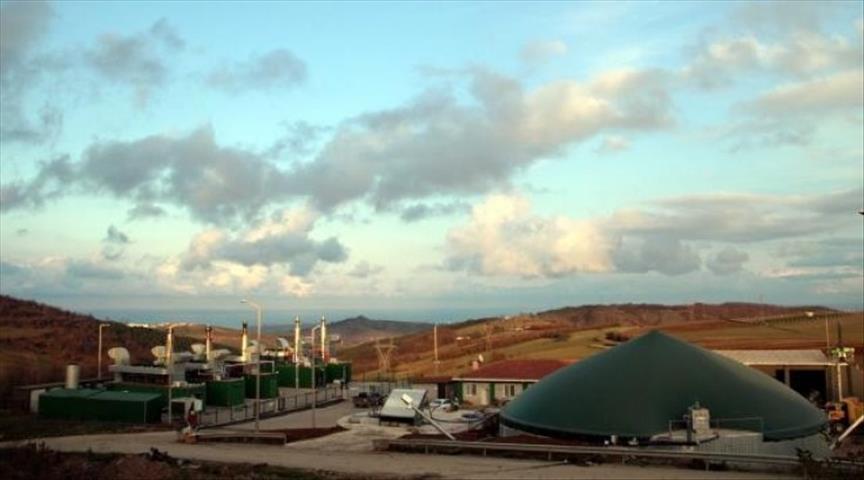Turkey's biggest city Istanbul's rubbish produces 340 million kilowatts-hours (kWh) of energy annually from 14,000 tonnes of waste, according to information Istanbul Metropolitan Municipality provided to Anadolu Agency.
Inhabited by more than 14 million people, Istanbul's waste is collected and gathered in storage fields by ISTAC A.S., which was founded as an affiliate of the municipality in 1994.
The company collects around 14,000 tonnes of garbage in Istanbul every day, 9,000 tonnes from the European side at four transfer stations, and 5,000 tonnes from the Asian side at three stations.
Special vehicles make 450 and 250 trips every day to transport waste from Istanbul's European and Asian sides, respectively. These are then disposed into two sanitary landfill facilities in Istanbul, one in each side of the city, to be transformed into electricity by various methods, according to ISTAC A.S.
When the waste stored in these sanitary landfill areas consumes oxygen, and later decays without oxygen with the help of anaerobic bacteria, a storage gas named landfill gas (LFG) is formed.
Formation of the gas may change with the amount of organic waste inside the solid waste. Methane, the combustible and explosive content of the storage gas, has a greenhouse gas effect that is 23 times stronger than carbon dioxide, according to ISTAC A.S.
The company plans to have an installed capacity of 25-30 megawatts (MW) for the Odayeri Sanitary Landfill area, and projects to produce around 2,203 gigawatt-hours (GWh) of power between 2007 and 2030. It also targets to have an installed capacity of 10-15 MW for the Komurcuoda Sanitary Landfill area to produce 1,136 GWh of power between 2007 and 2030.
For over 20 years, ISTAC A.S. is engaged in constructing and managing sanitary landfills, refining garbage waters, producing electricity from biogas, composting from organic waste, managing industrial waste, collecting medical waste, recycling packing wastes, coastline and sea surface cleaning, energy production from wastes and consulting services.
Reporting by Ali Cevahir Akturk
Writing by Ovunc Kutlu
Anadolu Agency
ovunc.kutlu@aa.com.tr


